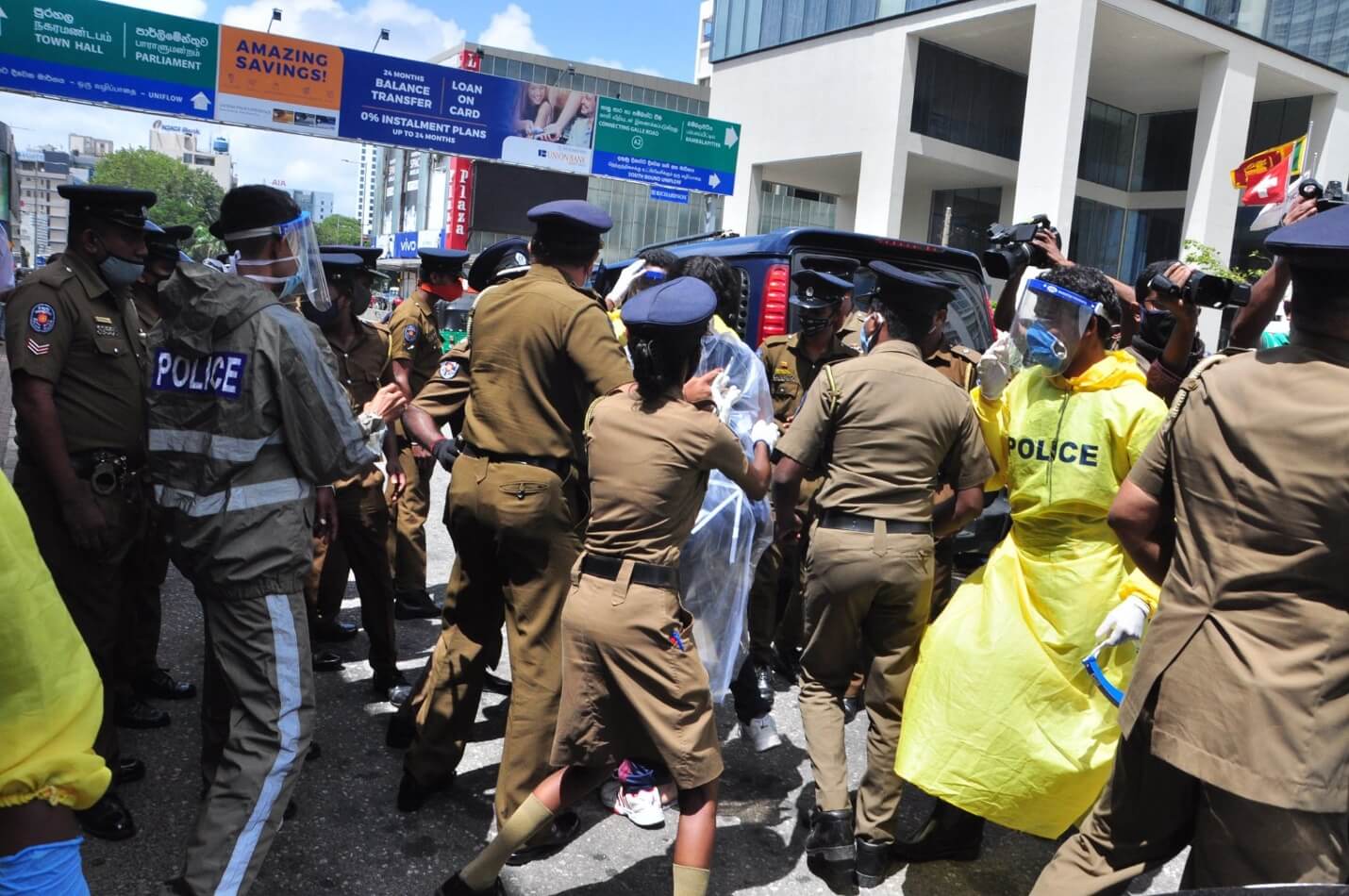Thousands of Sri Lankans poured into the streets of Colombo on Thursday to protest the country’s prolonged economic crisis and the police’s increasing crackdown on recent protests. Civil rights groups, trade unions, and hundreds of students held a rally along the streets near Town Hall and gathered at the Hyde Park grounds to demand change by calling on President Ranil Wickremesinghe to hold an election soon.
Food inflation has reached 85.8%, and the price of non-food items is up 62.8%. Worryingly, the economy is also projected to contract by 8.7% this year. The country has also suspended around $7 billion in debt repayments, with foreign debt now in excess of $51 billion, of which $28 billion is owed by 2027.
Ravi Kumudesh, a trade union leader, told the Associated Press that the demonstration aimed to “give a clear message to the government: Stop harassing those who protest over their grievances and give relief to the people.” He added that the union would expand its protests if the government “is not ready to listen to the voices of the people.”
Human rights groups have accused the military of attempting to curb protests through “intimidation, surveillance, and arbitrary arrests” of dozens of protest leaders and activists since Wickremesinghe came to power in July.
People took the train from Colombo to Tangalle today to protest the misuse of the law to imprison Wasantha Mudalige and Siridhamma Thero.
— Uvindu Rajapakshe (@UvinduBro) October 23, 2022
However, the police gathered and prepared to suppress the peaceful people even before going 100M from the Tangalle railway station. #SriLanka https://t.co/G9BzFiy9Oj pic.twitter.com/XeG59UZ4mL
Wickremesinghe has assured leniency for those who committed violence unintentionally or at the instigation of others. He has also said he will set up an office to protect and support non-violent protestors, urging them to use the 24-hour dedicated line to report any injustice. However, he has promised to punish those who have consciously violated laws.
Despite vowing to support peaceful protests, Wickremesinghe has taken a heavy-handed approach and declared a state of emergency almost immediately after being appointed to the post via a parliamentary vote, vowing to defeat the ‘fascists.’ He also ordered security forces to clear protest sites around the president’s office.
Expressing discontent about the situation, Wasantha Samarasinghe, another trade union activist, demanded that “the government release all prisoners who have been taken into custody during this struggle and stop this suppression.”
This is Beliatte. The sheer number of police deployed into a rural town because @RW_UNP is afraid of protests. This is what he spends on our tax money.#lka #SriLanka #RightToProtest #SriLankaProtests #GoHomeRanil #SriLankaCrisis pic.twitter.com/gb8Z2ZDe4N
— Prasad Welikumbura (@Welikumbura) October 23, 2022
Over the past few months, Sri Lanka has been embroiled in political and economic turmoil. Prior to Wickremesinghe taking over as president in July, protesters had been calling for the ouster of former President Gotabaya Rajapaksa and his family for months due to spiralling inflation, powercuts, and severe food, fuel, and medicinal shortages. Rajapaksa subsequently fled the country and demonstrations took a turn for the worse after Wickremesinghe’s private residence was set ablaze and protesters stormed the presidential palace.
The country’s prolonged economic crisis is attributable to populist tax cuts, poorly thought-out policies such as a ban on chemical fertiliser imports, extravagant expenditure on infrastructure projects, and high levels of sovereign debt. All of this has been exacerbated by the devastating impact of the COVID-19 pandemic, which severely damaged the country’s vital tourism sector, and the Ukraine war, which fuelled a further rise in the prices of critical goods. Shortages of food, fuel, medicines, cooking gas, and other basic amenities have incited major public protests since the start of the year.
To this end, the Wickremesinghe administration has been focused on efforts to rejuvenate the economy and in September inked a staff-level agreement with the International Monetary Fund on a four-year-long Extended Fund Facility with $2.9 billion in special drawing rights that are centred around fiscal consolidation, debt restructuring, inflation reduction, and structural reforms.

